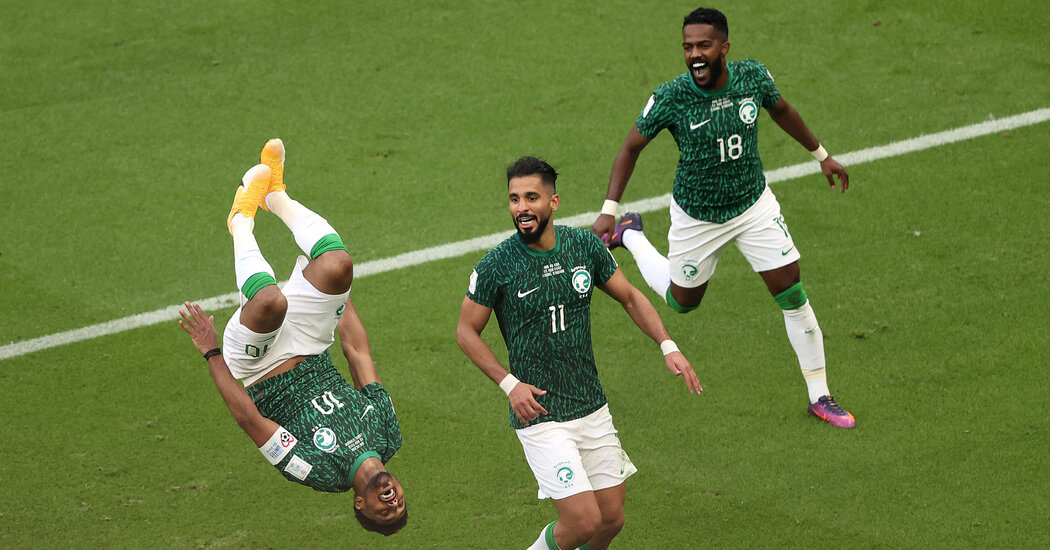
Though Saudi Arabia has spent hundreds of millions of dollars in recent years to acquire a global sports presence — securing the rights to a Formula 1 grand prix, investing through its sovereign wealth fund in the English Premier League team Newcastle United and backing the breakaway LIV Golf tour — it remains a minor, if regular, presence on the World Cup stage.
Soccer, though, is a point of pride. Saudi Arabia’s domestic soccer culture is passionate and organic, and its best club teams, some of the strongest in Asia, attract considerable crowds and carry devoted, and noisy, followings.
The number of fans in attendance in Lusail reflected that. The Saudi authorities have eased overland travel restrictions to allow fans to attend the World Cup, and the country’s tourism minister said before the tournament that there would be 240 flights a week between the kingdom and Qatar, as opposed to the more usual six.
Ibrahim al-Kassim, the secretary general of the Saudi soccer federation, had promised that the country would send enough fans “to exceed half of the capacity of the stadium in each match.”
Not all of them, though, were particularly familiar with the team they were watching. “I don’t really watch Saudi soccer,” said Ali Al Jubar, a fan who had made the two-hour journey from the border by bus. His interest, he said, is generally in European teams, particularly Manchester City and Liverpool. “But this is the biggest result for Saudi Arabia,” he said.
The significance of the victory — the greatest in Saudi history and likely to be remembered as one of the most startling results the World Cup has seen — could be gauged by the response. As well as Saudi fans sharing memes of Messi as a roasted goat — a play on his (contested) status as soccer’s Greatest Of All Time — the official media of the Two Holy Mosques, Haramain Sharifain, posted a message on Twitter with the country’s flag and a green heart.
Amid all the euphoria, Hervé Renard, the team’s well-traveled French coach, was doing his best to remain calm.